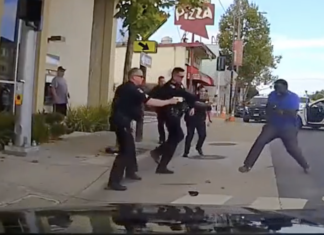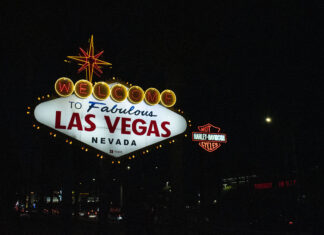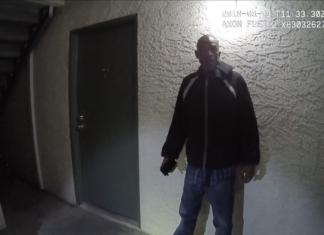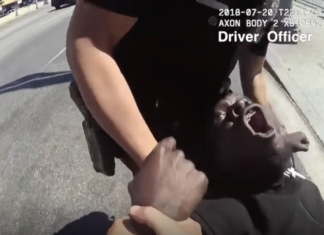An investigation of police force that wasn’t supposed to end in death.
See the full project from the Associated Press and partners.
Myth of “superhuman strength” in Black people persists in deadly encounters with police
Lorem ipsum dolor sit amet, consectetur adipiscing elit, sed do eiusmod tempor incididunt ut labore et dolore magna aliqua. Ipsum dolor sit amet consectetur adipiscing elit. Egestas diam in arcu cursus. Massa sapien faucibus et molestie. Ultricies integer quis auctor elit.
How non-shooting deaths involving police slip through the cracks in Las Vegas
By Taylor Stevens and Katie Donnelly | The Howard Center for Investigative Journalism at Arizona State University
Mar. 28, 2024
LAS VEGAS – Richard Ybanez always saw himself as his little brother’s protector.
Growing up as latchkey...
FRONTLINE documentary to air April 30
The film, "Documenting Police Use of Force,'' takes viewers behind the scenes of the unprecedented investigation into why more than 1,000 people across the U.S. died after police subdued them with force that wasn't meant to kill.
‘My dad, he needed help’: Woman says her dead father deserved more from Nevada...
On a chilly morning in 2019, just after 3 a.m., Roy Anthony Scott called 911 to report that a group of people – one armed with a saw – was trying to break into his apartment. This wasn’t the first time a dispatcher had sent emergency responders to Scott’s home in Sunset Gardens, a senior living complex in Las Vegas.
Mental health problems and meth show up repeatedly in deaths in non-shooting police encounters
Roy Anthony Scott’s death is not an anomaly. The Howard Center for Investigative Journalism in collaboration with The Associated Press identified 11 other deaths in non-shooting police encounters in Nevada from 2012 to 2021. Five of those who died had histories of mental illness and meth in their systems at the time of their deaths. Those findings track broader data on national police deaths.
California law enforcement agencies have hindered transparency efforts in use-of-force cases
Despite new laws intended to “pierce the secrecy” protecting California police officers, law enforcement agencies have thwarted those who seek information on cases of misconduct – in some instances battling requesters in court. And some basic personnel records – including complaints and disciplinary action against officers – are still hidden from the public, accessible only when a California judge grants access to them.







